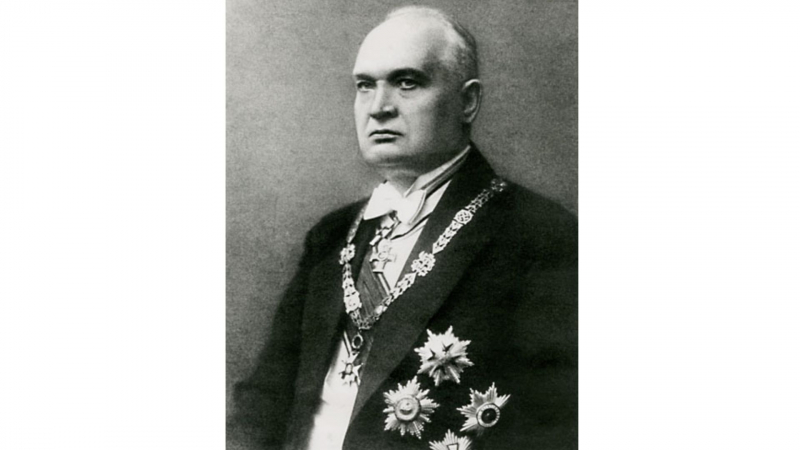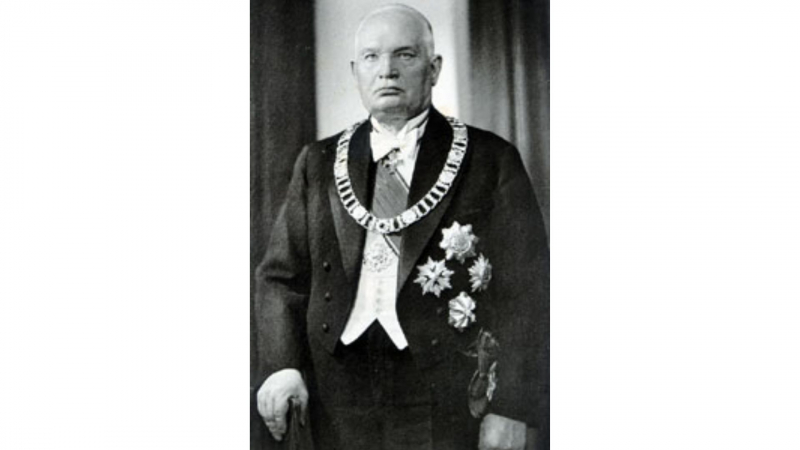Konstantin Päts
Konstantin Päts (23 February [O.S. 11 February] 1874 – 18 January 1956) was an Estonian statesman who served as the country's President from 1938 to 1940. Päts was one of the most powerful leaders in independent Estonia, serving as Prime Minister five times in the two decades preceding World War II. Päts was one of the first Estonians to enter politics, beginning a nearly 40-year political struggle with Jaan Tnisson, first through journalism with his daily Teataja, then through politics. During the Russian Revolution of 1905, he was sentenced to death (in absentia), but he managed to depart the country, first to Switzerland, then to Finland, where he resumed his literary activity. He returned to Estonia, but was imprisoned from 1910 to 1911.
Päts led the most right-wing of the major political parties in the 1920s and early 1930s, the conservative Farmers' Assemblies, which eventually merged with the Union of Settlers and Smallholders in 1932. Päts was Riigikogu speaker (1922-1923) and State Elder five times, a position similar to president in Estonia's fundamentally parliamentary system. Many reforms were implemented and the economy thrived during the "Era of Silence" of 1934-1938, while he delayed the restoration of constitutional order. Päts ruled as Prime Minister in the functions of the State Elder (1934-1937) and President-Regent (1937-1938) until a new constitution was approved in 1938, following which Päts became the first President of Estonia. In 1940, the Soviet Union occupied Estonia during his administration. He was compelled to sign decrees as President for nearly a month before being captured and transferred to the Soviet Union, where he died in 1956.









